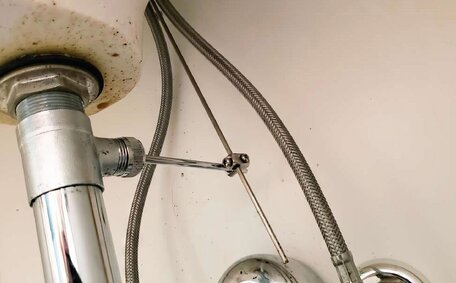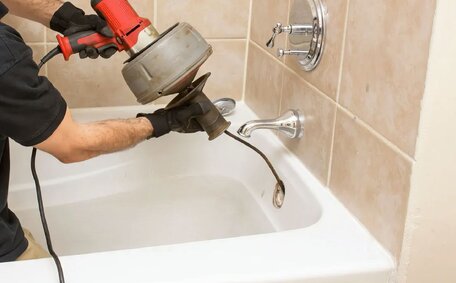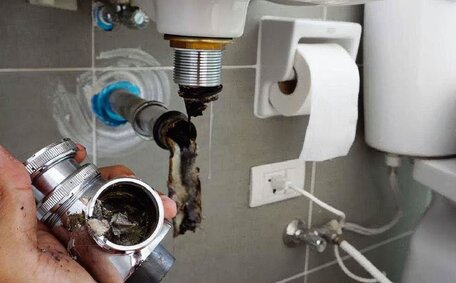Introduction to Gas Line Safety
Ensuring the safety and integrity of natural gas lines is crucial for the welfare of Sans Souci residents and businesses relying on this energy.
While gas powers essentials like heating, cooking, and hot water in many households, neglect, including corrosion and leaks, can compromise home safety. The article provides essential guidelines on regular inspections, recognizing potential issues, and maintaining gas line safety and efficiency.
All gas piping, appliances like stoves, hot water systems and the gas metre, along with every connection leading into your property, should undergo periodic line inspections. Although major gas providers carry out yearly leak checks, residents should also conduct visual inspections every 6 months to detect hissing sounds, strange odours, or other signs of problems.
Consistent monitoring promotes efficient gas asset operation and extends their service life.
Recognizing Potential Gas Line Issues
Homeowners and business operators should stay vigilant for signs of gas hot water system or gas line issues. Key indicators prompting a gas line inspection include:
- An unusual rotten egg odour, which often signifies problems gas if detected, is caused by an additive in natural gas named mercaptan that aids leak detection
- Hissing noises coming from gas appliances or along the gas line
- Dirt blowing from a crack in the gas line
- Discoloured or dead vegetation in a normally green area
- Flames coming from the ground or burning above the gas metre
- Unusually high gas bills
If any of these symptoms are noticed, take immediate action by shutting off your gas metre and contacting Sans Souci Plumbing on 1300 349 338. Our licensed gas fitter team will pinpoint the issue and perform necessary gas line repair, so don’t hesitate to call gas experts to rectify dangerous or inefficient conditions.
Yearly inspections by property owners are essential for the early detection of gas line maintenance requirements. Look along the external gas piping leading into the metre box and appliances for any signs that lines need attention such as corrosion or damage.
It’s also important to routinely check burners on stoves, ovens and your water heater systems to make sure there are no unusual flame patterns or operation, which could indicate airflow issues caused by a leak.
Components of Gas Lines and Maintenance Checks
Pipe Materials and Age
The type and age of gas pipes significantly influence the inspection frequency and method. Galvanised steel or black iron pipes installed prior to the 1970's are more prone to wear and tear, potentially accelerating internal corrosion and fatigue cracks. The type and age of gas pipes significantly influence the inspection frequency and method.
We recommend having a full gas line inspection done at 5-year intervals for older pipes.
Valves
Gas shut-off valves inside the metre box and at appliance connections can seize up over time. Activate shut-off valves every 6 months to ensure smooth operation when emergencies necessitate cutting the gas supply to your appliances.
A thorough check should be conducted for signs of corrosion or leaks. Faulty valves should be replaced by a qualified licensed gas technician.
Vents
Keep gas exhaust vent areas free of debris, nests, blockages, or snow to prevent dangerous exhaust impediments during appliance operation. Blockages in vents used for gas appliances or air conditioning can lead to dangerous gas build-up inside your house.
Metres
Checking your meter readings biannually helps identify leaks, though meters can become uncalibrated over time. To ensure accuracy, your gas meter should be validated or exchanged by a professional gas inspector every 8-10 years.
Understanding Maintenance Responsibilities
Defining line maintenance responsibilities is essential to maintain safety and performance. While utility companies such as AGL undertake responsibility for the gas mains and the connection to your gas metre, property owners bear the responsibility for service beyond this metering point.
Property owners are responsible for organising and funding the servicing, repairs, or replacements of gas systems beyond the meter to adhere to standards. This responsibility extends to piping for any outbuildings, rental properties or associated businesses to meet gas company standards. Understanding your obligations avoids confusion over who is liable for attending to reported leaks or other faults.
We advise owners to review the appliance documentation received upon installation or transfer to comprehend unit details and the necessity for regular safety assessments. Make note of the suggested maintenance schedule from manufacturers. Also, confirm if regular safety checks are a federal or state compliance requirement in your council area, and if a certificate of inspection needs to be lodged.
While not compulsory in Sydney, it is crucial to proactively manage gas safety, with Sans Souci Plumbing advocating for an annual inspection routine. Maintain servicing records for insurance and consider additional coverage for appliances like hot water systems, if not included in your policy.
Hiring Professionals
Gas inspections, repairs, and new installations should be performed solely by a qualified plumber specialising in gas fitting. They hold formal certifications after extensive training on the nuanced components like valves, vents and piping involved across residential and commercial properties.
Our certified gas fitters can adeptly evaluate and mend your property’s gas systems, ensuring their safe and efficient function. With decades of combined experience gained locally, we stay current on all compliance requirements and best practises to deliver trusted results.
Homeowners needing mandatory servicing, new appliance installation, or gas line safety assessments should call our office on 1300 349 338. After discussing your needs, we’ll recommend the most suitable route forward and provide a competitive quote for any works requiring completion.
For active leaks or emergencies, instantly call our 24/7 response line for swift assistance. Our annual maintenance plans offer guidance on standard checks to uphold peak performance of your gas systems.
Process of Professional Inspections
When Sans Souci Plumbing’s certified technicians conduct a professional gas line inspection, they follow a meticulous process utilising specialised leak detection tools and other equipment to assess all piping, valves and appliances.
Step 1 involves a visual check of all external gas connections up to the metre entry point, looking for corrosion damage, loose fittings or obvious leaks to ensure safety. We rate pipe integrity based on age and document materials.
Step 2 sees technicians move indoors, using a sensitive gas detector wand to trace all supply routes. We measure gas concentrations to identify any irregularities. Electronic metres then measure operating pressure.
For Step 3, appliances such as stoves and systems for heating air with gas undergo combustion checks using analysis probes to gauge efficient burner function. The inspection also entails evaluating flame characteristics and testing safety ignition systems. Airflow readings rule out exhaust backdrafting.
In Step 4, technicians determine compliance with current Gas Safety regulations, provided appliances have data plates. We ensure proper certification of previous installs. Rectification quotes follow if risks or non-conformities arise.
We Digitally record all evaluation findings on mobile tablets, creating tailored maintenance schedules for homeowners. We outline suitable pipes & equipment replacement timeframes based on condition.
Contact our knowledgeable team on 1300 349 338 to book gas safety inspections, ensuring comprehensive protection. We help identify issues early through vigilant gas service and maintenance to prevent emergencies.
Prevention and Best Practices
Taking proactive measures is vital to avoid gas line issues and sustain safety long-term. This involves:
- Following the recommended 6-month visual inspection routine helps spot early issues with appliance gas lines, as well as checking external pipes and connectors.
- Schedule professional inspections by accredited technicians ideally every 2 years, to ensure leak detection and component assessment.
- Recognising that older galvanised piping should be scheduled for replacements after 15-20 years, considering their susceptibility to corrosion.
- Keeping the gas metre and external pipework clear of obstructions that could conceal leaks or signal that gas lines need attention.
- Operating indoor shutoff valves and appliance taps regularly to prevent seized mechanisms.
- Never attempting DIY gas work. Always hire qualified gas safe tradespeople to ensure compliance.
While responsibility falls on property owners, Sans Souci Plumbing’s quality services help safeguard your family through simplified plumbing maintenance. Our CarePacks, administered by a licensed plumber, include leak detection, certification, scheduled servicing and priority response. For guidance on optimising your gas maintenance schedule, don’t hesitate to call 1300 349 338 today.
Dealing with Gas Emergencies
Gas emergencies require swift, careful action. Avoid using any electrical devices, as sparks could ignite the gas. Ventilate the area by opening doors and windows, and check gas levels to ensure the hazardous gas has dissipated. Remain outside until our technicians or emergency crews confirm its safe to re-enter. If there’s a gas odour or you suspect a leak, evacuate immediately and contact emergency services.
Before evacuating, shut off the gas supply at the main valve located near the gas metre, if it is safely accessible. Check all gas appliances your home contains, such as stoves, ovens and your water system, to see if pilot lights have gone out or burners are still operating - shut these off only if safe to reach them. Keep our 24/7 emergency number handy to enable urgent response and repairs by our licenced team if you need gas repairs or in cases where gas leaks can cause immediate damage.






